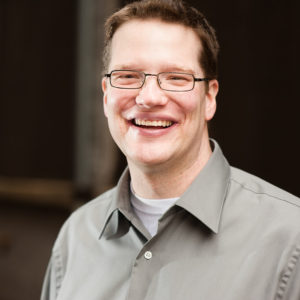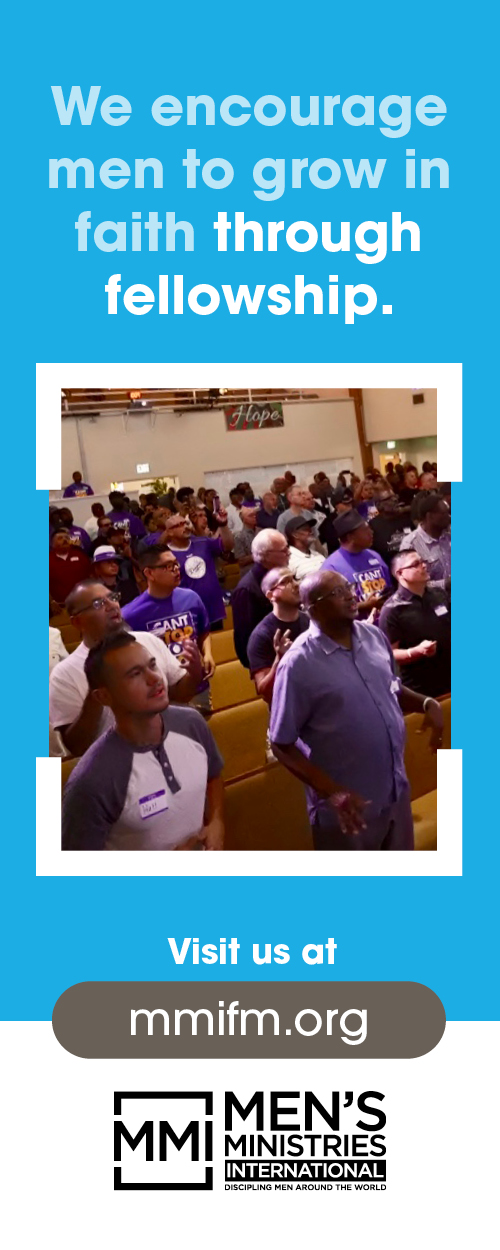
Jeff Finley
Light + Life Executive Editor
Jeff Finley is this magazine’s executive editor. He joined the Light+Life team in 2011 after a dozen years of reporting and editing for Sun-Times Media. He is a member of John Wesley Free Methodist Church where his wife, Jen, serves as the lead pastor.
by Jeff Finley
Indianapolis may seem like the least likely place to start a new church. The hometown of the Free Methodist World Ministries Center has the most churches per capita of any big city in the United States, according to the Property Shark real estate website. Indianapolis has “one religious venue for every 289 people.” Seattle is a distant second with a place of worship for every 482 people.
Before the COVID-19 pandemic, I frequently received letters or postcards inviting me to attend new churches in the Indianapolis area. Fewer churches seem to be launching now, but members of a local Facebook group continue to question whether the area needs any more church plants. Why start congregations in shopping centers, health clubs, schools or movie theaters when there are already so many churches? Why aren’t Indianapolis church planters going instead to Los Angeles, which has a religious venue for every 1,652 people, or Las Vegas, which has one for every 2,841 people?
Well, according to the Public Religion Research Institute, 19% of Indianapolis residents have no religious affiliation — the same percentage as in New York City, which has one religious venue for every 1,353 people. Although Seattle is No. 2 for churches per capita, it’s also No. 2 for residents (33%) who are religiously unaffiliated. In Portland, the least religiously affiliated city, 42% of residents don’t identify with any religious faith.
Even in the cities of the American South, aka the Bible Belt, there are plenty of people who don’t identify with any faith — 18% of residents in Atlanta, Dallas, Houston and Orlando; 17% in Charlotte; and 15% in Nashville.
The preceding statistics don’t just refer to the Christian faith. Many people attend weekly services in houses of worship that do not acknowledge these words of Jesus Christ: “I am the way and the truth and the life. No one comes to the Father except through me” (John 14:6).
Even the most heavily churched areas — urban, suburban or rural — include numerous people dying without knowing Jesus as their Savior. No wonder He told His disciples, “The harvest is plentiful but the workers are few. Ask the Lord of the harvest, therefore, to send out workers into his harvest field” (Matthew 9:37–38).
Identification as a Christian doesn’t mean that a person follows the biblical principle of “not giving up meeting together” (Hebrews 10:25) whether in person or online. According to pre-pandemic statistics from the Pew Research Center, only 44 percent of self-identified Christians attend church at least once a week. In 2019, the Gallup polling firm found “the percentage of Americans who report belonging to a church, synagogue or mosque at an all-time low, averaging 50%.”
The Free Methodist Way includes a commitment to Christ-Compelled Multiplication. Our bishops remind us that this multiplication is not just about planting churches (although that is part of this value). Every Christian should be building relationships with people who do not yet know Christ. After all, “Jesus’ approach to discipleship was primarily a relational one in which He poured His life into a few with the full expectation that they would follow His example. His aim was not merely the transmission of information, but the transformation of lives by empowering those who followed Him to do what He had been doing. His mission is now our mission. We believe this redemptive movement of multiplication applies to every believer and should permeate our Free Methodist culture at every level: the found reaching the lost, disciples making disciples, leaders developing leaders, churches planting churches, and movements birthing movements.”
Multiplication may not look the same in 2021 as it did in the past. The Free Methodist Way reminds us that, regardless of societal changes, we still must work “to see God’s kingdom expand exponentially as ordinary people are equipped by God’s power to do extraordinary things.” People may not be as likely to visit our church buildings these days, but they may connect with a church plant or a 150-year-old congregation by watching a service on YouTube or responding to a sponsored Facebook post.
While online efforts are important to reach people with no previous connections to a church, the best way to attract new people to the body of Christ (1 Corinthians 12:12–13) may be for them to observe a friend or a family member whose life is transformed or whose faith survives a personal tragedy. If we want to see multiplication, we must remember to “always be prepared to give an answer to everyone who asks you to give the reason for the hope that you have” (1 Peter 3:15).
+

Jeff Finley
Light + Life Executive Editor
Jeff Finley is this magazine’s executive editor. He joined the Light+Life team in 2011 after a dozen years of reporting and editing for Sun-Times Media. He is a member of John Wesley Free Methodist Church where his wife, Jen, serves as the lead pastor.









